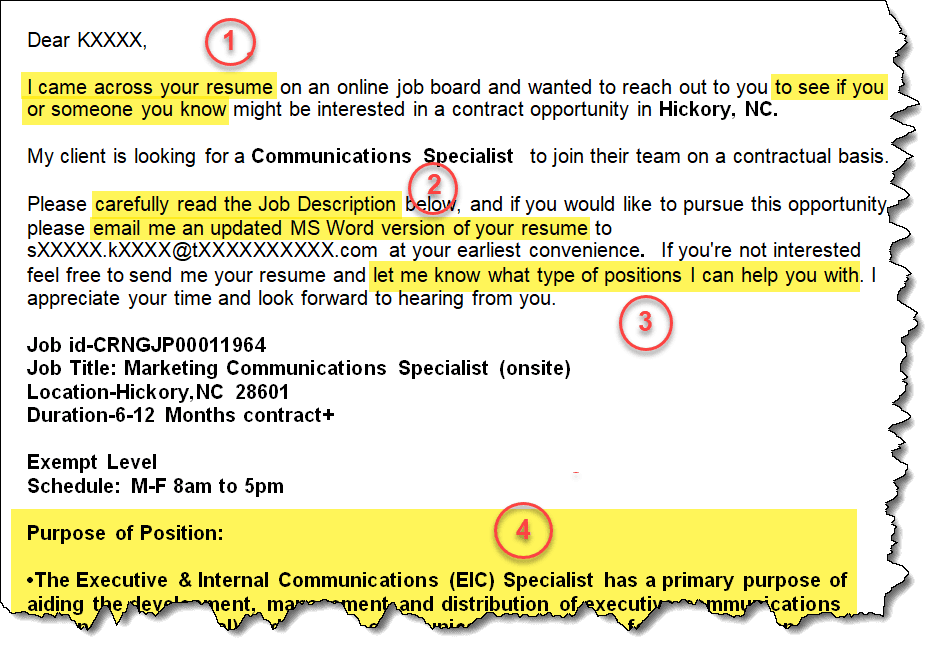In the September 19, 2017 Ask The Headhunter Newsletter, a headhunter screws up.
Question
I read your PBS NewsHour column, Job interviewers shouldn’t be asking for your salary. Here’s why. I am a new headhunter and I agree with everything you said in that article.
I recently had a deal fall apart with a client in the northeast who was ready to pay up to a $220K base salary. My best candidate was making $150K in the midwest. He checked off most of the boxes on their wish list, was in a niche, and there are not a lot of people doing what he does. He was willing to move his family, but the company only offered $185K despite a $30K cost-of-living difference. He wanted at least $195K to make a move but the company wouldn’t do it because they were stuck on the 30% increase and thought it was too high.
Everybody in the company that met my candidate loved him. He was nearly perfect for the role but they wouldn’t budge because of his prior salary.
So my question to you is: How do you persuade your clients not to ask about salary history in states where it is allowed? I understand that you might not want to give out trade secrets but thought I would ask. Thanks in advance for your help!
Nick’s Reply
There’s no trade secret here. Just common sense, fair play, and good business. Your client is demonstrating none of those qualities. When a company pays a headhunter for help finding a top-notch hire, our job is to tell the client the truth and help them make a good deal.
But the problem here is not just that your client got stuck on your candidate’s prior salary. It’s also that you fostered the problem by disclosing your candidate’s salary to begin with. Get out of that habit. Learn to push back and say no. Part of telling your client the truth is telling them the candidate’s salary is none of their business — and not the basis for a sound offer.
When the client gets in its own way, the headhunter must take control — or fire the client. You can’t win when you do your job, deliver a great candidate for fair pay, and then let your client kill the deal so stupidly.
A good headhunter doesn’t run a bargain basement
What’s stupid is that your client is not recruiting your candidate for what he’s worth to them. They’re trying to get an unfair bargain by offering an excellent candidate only what he’s worth in the midwest. What’s going to happen is a competitor is going to snatch him up for what he’s really worth in the northeast.
The way to persuade your client to judge a candidate’s worth for themselves, without looking at salary history, is to tell them what I just told you. (Check the boldface in the paragraph above.) If they don’t respond well to that, then you tell them something like this:
How to Say It
“If you aren’t willing to pay someone what they’re really worth, then I won’t be referring candidates of this caliber to you any more. Your team loved him. He was highly motivated to take the job and do great work for you. We both know he’s worth at least $200K. If he was from the northeast, you wouldn’t hesitate to pay him $220K. So while you wasted his time and mine, you’re the losers. Lotsa luck when word gets around that you don’t know how to judge a person’s value to your business.”
If you can’t control your client with the first message, you have to fire them with the second. Do you want to go through this with them again? You’re not in the bargain-basement business.
Fire the client
Yes, I’d fire this client. They just cost you several big fees, because the candidate probably would have referred several other great candidates to you over the next several years if this had worked out.
This client has probably damaged your credibility with the candidate — and he’s going to tell people. While any headhunter’s fiduciary duty is to their client (the employer), the headhunter’s reputation rests on the experience of candidates, too. If you can’t negotiate a good — not just reasonable — compensation package for a truly good candidate, you’re hurting yourself.
A good headhunter controls clients
To other clients, I’d make your policy clear. Your job as a headhunter is not to disclose salary; it’s to negotiate it!
How to Say It
“I don’t disclose a candidate’s salary because it’s irrelevant. I’m working with you under the premise that your company has a competitive edge and is thus able to attract the best people. If you’re going to judge candidates by what other companies pay them, then where’s your edge? If you don’t have a competitive edge, why would my candidates want to come work for you? Why would I want to recruit for you? I’d be happy to invest whatever time is necessary to help you assess this candidate’s value to your company in this market and in this locale.”
A good candidate becomes a client
I’m sorry you had to experience this. It’s a hard lesson. I’d fire the client, but I’d then quickly try to pick up some new clients — among its competitors. Can you get a similar assignment from them? I’m not suggesting peddling this candidate around town — that’s not what real headhunters do. (See Headhunters find people, not jobs.) But you’ve found one great candidate who will likely lead you to more, so work with what you’ve got.
If you can place him, I’d call back Lowball, Inc. and give them a heads-up.
How to Say It
“It looks like you’ll be working with Mr. X after all – but as a competitor. He’s a really talented guy, so I wish you luck! No, I can’t tell you where I’ve placed him — that would be unethical until he’s settled in. But you’ll know soon enough.”
And remember one other thing. When you fire a client, they become a source of candidates. And a good candidate can become a great client!
A good headhunter is a good broker
A good headhunter is a broker who doesn’t just bring two parties together. A good headhunter educates, manages and guides them to a successful outcome that makes them both happy to work together. Sometimes you have to take charge to do that. And sometimes you have to fire a candidate or a client. In this case, your candidate may be more valuable to you in the long term than this particular “client.” If you can’t negotiate a fair salary with your client, fire the client and save your future relationship with the candidate. Don’t be any less than the best broker you can be.
I know some of my suggestions may seem a bit snarky, but employers that can’t get out of their own way aren’t good clients. I wish you the best.
My PDF book, How to Work With Headhunters… and how to make headhunters work for you is designed for job seekers, but it’ll show you how to be a good headhunter, too.
Dear headhunters in the audience: Do you disclose a candidate’s salary to your clients? How do you manage your clients? Did you ever fire one? Job seekers: Do headhunters help you get a better salary or do they let their clients roll over you (and them)?
: :



 Nick, I need your help. I’m in a very tough spot with salary negotiations. HR told me the salary range for the position ($65K-$70K) on the phone before our interviews. T
Nick, I need your help. I’m in a very tough spot with salary negotiations. HR told me the salary range for the position ($65K-$70K) on the phone before our interviews. T
 A few years ago you called out employers for their misguided crying about the talent shortage. (
A few years ago you called out employers for their misguided crying about the talent shortage. ( A few years ago, one of the student workers at the library was selected (her name was randomly drawn) to keep the clothes and accessories the Student Success Center and a women’s organization purchased for her as part of a dress-for-success workshop. She also got to have her hair done, and learned how to do her makeup. She was so thrilled and grateful, because she couldn’t afford to go to Kohl’s and spend $350.00 on a few new (professional) outfits for herself.
A few years ago, one of the student workers at the library was selected (her name was randomly drawn) to keep the clothes and accessories the Student Success Center and a women’s organization purchased for her as part of a dress-for-success workshop. She also got to have her hair done, and learned how to do her makeup. She was so thrilled and grateful, because she couldn’t afford to go to Kohl’s and spend $350.00 on a few new (professional) outfits for herself. Question
Question


 Question
Question


 Nick’s Reply
Nick’s Reply This has always been a hot topic, mainly because employers just won’t stop asking for information that’s none of their business. Even if HR managers swear up and down that they need your salary data “because that’s our policy,” we all know why they really want it: It gives them an edge on job offer negotiations.
This has always been a hot topic, mainly because employers just won’t stop asking for information that’s none of their business. Even if HR managers swear up and down that they need your salary data “because that’s our policy,” we all know why they really want it: It gives them an edge on job offer negotiations.